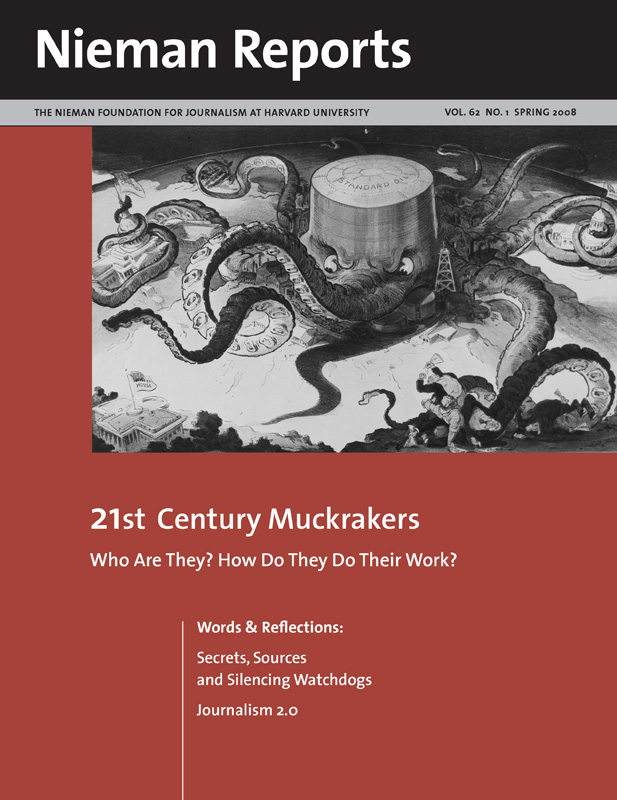Submitted via e-mail
Subject: When Video is King—Spring 2008 edition of Nieman
Not sure if you ever publish responses etc. but after reading Mr. Watson’s article in the Spring 2008 issue, I felt I needed to clarify or explain or question some of his statements re: government television in the grafs beginning with "Fitting In."
He uses Charlotte, North Carolina as an example. I can’t speak directly for their operation but perhaps either Mr. Watson did not get the full picture or they are operated differently in some ways from the channel I manage and many others like ours around the country.
He says Govt. programming is self-serving. Yes it is but; we provide information that is not often available from any other resource. I’m sure his station will cover City Council with a stand-up, a few bites and some b-roll. Is that the entire meeting? Is it in context?
He is correct in that we are not likely to produce investigative stories about ourselves. But a recent example reveals hopefully some value in what we do. Our city has been going through a difficult time pulling together the coming FY budget. Our City Council has held a series of workshops etc.—all open to the public—where they discuss, debate, argue etc. what should be done. Our channel has taped every minute of every meeting. Each one is then aired—gavel-to-gavel on our channel and also put on the web. There have been only a handful of citizens at most of these meetings and some reporters. But usually the TV folks grab some b-roll, try to get a quick bite from a Council member and they move on. They are providing some news in this way but certainly far from the whole picture. Anybody anywhere with either cable or an internet connection can view and see the "whole piece of sausage being made."
Most of us in Govt. television would never have said we are journalists in the first place—although in our shop my boss was a print reporter and editor for almost 20 years and we just hired a young man who spent perhaps 5 years as a reporter also. We strive for quality, we try to get it right and our goal is to get information out to the public. Re: the quality issue—much of what shows up on You Tube may be funny and occasionally even good quality but for the most part, it is what it is, yet millions of people watch. Millions don’t watch us—I’d venture to say our audience measures in the hundreds. But those hundreds or so are interested in their local government and we provide a more complete picture by covering every City Council meeting, every Zoning Commission meeting and numerous other City Boards on a regular basis—unedited.
Mr. Watson comments on the cost of this coverage to tax payers. In some cities maybe taxpayers DO support this. But in our City and hundreds of others in the U.S., a small percentage (usually 5%) of cable bills—not tax dollars, support most of what are called PEG (Public, Education & Government) channels.
He says the County (Mecklenburg) funds another "over-the-air" channel. I may be wrong here (but I didn’t as a journalist write the story) but I think the County has obtained (whether for payment, in-kind or other compensation I do not know) airtime on one of the Digital channels of PBS station WTVI that have opened up as a result of stations having the ability to broadcast in HD. If I understand correctly, when they do not send out an HD signal, they have some space left over and can broadcast multiple channels of standard definition television. Even if the county pays for this airtime, it hardly qualifies as "funding another over-the-air tv station." Hope this helps somehow. We have a tough enough time getting people to understand who we are and what we do without the "professionals" getting it wrong.


